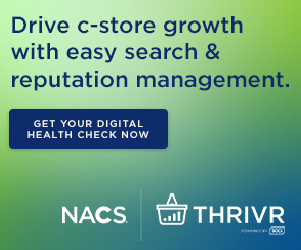Industry and U.S. government goals continue to drive the volume of electric vehicles (EVs) on the nation’s roads—from cars to heavy-duty trucks. EPRI is leading a new, three-year initiative—EVs2Scale2030™ —that will collaborate with more than 500 stakeholders including Amazon, the U.S. Department of Energy, and leading electric companies to ready the electric grid in support of the accelerated development of EV charging infrastructure.
EVs2Scale2030™ includes electric companies, fleet operators, auto and truck manufacturers, and charging providers, in coordination with federal agencies and national labs, the Edison Electric Institute, the American Public Power Association, the National Rural Electric Cooperative Association, and the Alliance for Transportation Electrification.
Amazon is the first logistics provider to join the initiative. Founding electric company members include: Austin Energy, CenterPoint Energy, Con Edison, FirstEnergy, Great River Energy, National Grid, New York Power Authority, Omaha Public Power District, Pacific Gas & Electric, Portland General Electric, Sacramento Municipal Utility District, Salt River Project, Seattle City Light, Southern California Edison, Southern Company, and Xcel Energy. Additional data collaborators include Daimler Truck North America, PACCAR, Volvo Group North America, and World Resources Institute.
“Collaboration, coordination, and standardization will be critical for the U.S. to meet its 2030 EV targets,” said EPRI President and CEO Arshad Mansoor. “EVs2Scale2030™ will bring together all of the key industry stakeholders to identify and address the challenges and opportunities needed to drive toward an affordable, equitable, and reliable clean energy future.”
Among key resources, the initiative plans to create:
- A 50-state visualization and 2030 roadmap identifying the aggregated and anonymized electric vehicle loads, grid impacts, utility lead times, workforce requirements, and costs;
- An online platform that defines the cross-industry processes needed to support the pace of activity and investment required to meet large-scale electrification by 2030; and
- A secure data exchange platform for fleet operators and charging providers that allows energy companies to better plan and prioritize investments in grid upgrades.
“Amazon is committed to decarbonizing our transportation network, and we’re rapidly rolling out thousands of electric vehicles to help us reach net-zero carbon by 2040,” said Udit Madan, vice president of Amazon Transportation. “No one company can solve the climate challenge alone, and stakeholders across the industry need to come together to transform fleets at an unprecedented scale and speed to meaningfully impact emissions. We are proud to join EPRI’s EVs2Scale2030™ initiative and will continue to work to give utilities the tools and information they need to successfully electrify the transportation sector.”
“For the U.S. to meet its ambitious electric vehicle goals, the public and private sectors must unite to address what’s needed,” said Brett C. Carter, chair of EVs2Scale2030™ and executive vice president and group president, utilities, and chief customer officer of Xcel Energy. “From wires to wheels and everything in between, consumers need to have confidence in EV charging availability, reliability, and affordability, without compromising current energy resources. EVs2Scale2030™ will be essential as we address challenges on behalf of the customers and communities we are privileged to serve,” he added.
“DOE is partnering with EPRI, vehicle makers, and fleets to develop tools that utilities can use to inform the deployment of chargers,” said Michael Berube, deputy assistant secretary for Sustainable Transportation and Fuels in the Department of Energy. “Through this partnership, we are combining the technical expertise of the DOE national labs with EPRI’s knowledge of the industry and data to accelerate decision-making towards a clean, reliable, and accessible EV future.”









